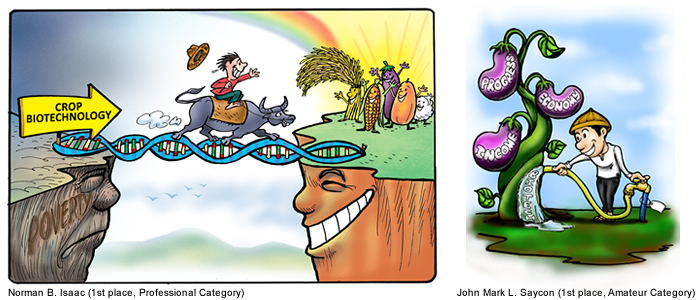
Date: 2025-04-04 Page is: DBtxt003.php txt00002120
Agriculture, Society and Economy
GMO issues
The Indian government is preparing charges against Monsanto, the US-based company for appropriating indigenous farming techniques and knowledge to develop a genetically altered eggplant.
COMMENTARY
Peter Burgess
The Indian government is preparing charges against Monsanto, the US-based agricultural company that specialises in biotechnology, for appropriating indigenous farming techniques and knowledge to develop a genetically altered eggplant.
Although the company has denied accusations of what has been termed “biopiracy,” the case could set a precedent for the future of global patent laws.
Activists also argue that patenting crop-breeding techniques has economic, ecological and ethical implications. Currently, five biotech corporations account for 77 percent of patents on living organisms.
In this episode of The Stream, we speak with Glenn Stone (@glenndavisstone), professor of anthropology and environmental studies at Washington University in St. Louis and Leo Saldanha (@leofsaldanha) of the Environment Support Group, an Indian NGO that has been calling on the government to press charges against Monsanto
What do you think? How has seed patenting and biopiracy affected the world food security? Send us your thoughts and comments on Facebook or Twitter using hashtag #AJStream.
These are some of the social media elements featured in this episode of The Stream:
MORE ELEMENTS FROM THIS STORY

This list on <a href="http://www.choice.com.au/reviews-and-tests/food-and-health/food-and-drink/safety/gm-food/page/how%20can%20you%20avoid%20gm%20foods.aspx" style="" target="_blank">choice.com.au</a> gives examples of what foods could contain GM crops.

